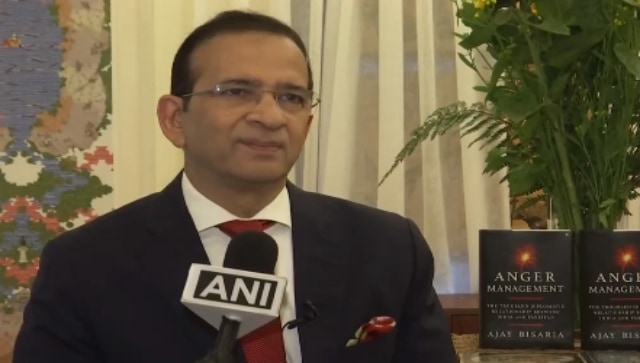Former High Commissioner to Pakistan Ajay Bisaria on Tuesday said that right after Pulwama attack when India had taken action in Balakot, the message to Pakistan was loud and clear that if it doesn’t return Wing Commander Abhinandan Varthaman India will escalate the situation.
Varthaman (now Group Captain) downed a Pakistani jet on 27 February, 2019, before his MiG 21 Bison jet was hit in a dogfight.
Pakistan had launched the retaliation for the Balakot airstrikes a day before. Varthaman was captured by the Pakistani Army and was released two days later.
Speaking to ANI news agency about his upcoming book Anger Management: The Troubled Diplomatic Relationship Between India and Pakistan , Bisaria, who was serving as Indian High Commissioner to Islamabad during that period, said, “Right after the Pulwama attack, I came to India and I was part of the team which was monitoring the situation and dealing with it. The message that was going to Pakistan at that point was very clear that India was going to escalate the situation, in case the pilot was not returned. From all that we heard from Pakistan and all the conversations that we had, we were confident that the pilot would be returned because the consequences would have been serious and this was a message that went loud and clear to Pakistan’s system and Pakistan then reacted….”
Bisaria said in his book he has given an account of coercive diplomacy which followed after India had taken action in Balakot and subsequent action by Pakistan, as a result of which Abhinandan was captured.
“I’ve tried to present an account of the coercive diplomacy that took place after that, to get the pilot back. There was a very credible threat of force and use of nine missiles…Pakistan made the choice of returning the pilot, not wanting to escalate that conflict. In trying to de-escalate the situation, the Prime Minister of Pakistan attempted to call the Prime Minister of India. The Pakistani PM then felt obliged to take a decision because the threat of force was very credible to return the pilot in order not to escalate the situation…,” added Bisaria.
Referring to 2008 Mumbai 26/11 Mumbai attacks, Bisaria said back then India should have responded with a similar action that it finally gave in 2016 and 2019 with the surgical strikes and airstrikes and pain that India suffered in Punjab and Kashmir could have been lessened if India had taken hard power action.
“…If you look back today, certainly in 2008, India should have given this response that it finally gave in 2016 and 2019 with the surgical strikes and airstrikes. I think that the terrorism and the pain India suffered in Punjab in the 1980s could have been lessened if India had taken hard power action in the early 90s. The pain that India suffered in Kashmir could have been lessened if the point was made to Pakistan that India would use hard force as a response to meddling in either of these states…,” added Bisaria.
He said India has finally found an answer in the sub-conventional space to terrorism, because now Pakistan knows it has entered its security paradigms that there would be a strong response to any act of terrorism, whether by state actors or non-state actors.
“Therefore, it would know that there would be a cost to any such behaviour and therefore it would modify that behaviour…,” he added.
With inputs from agencies
Link to article –





